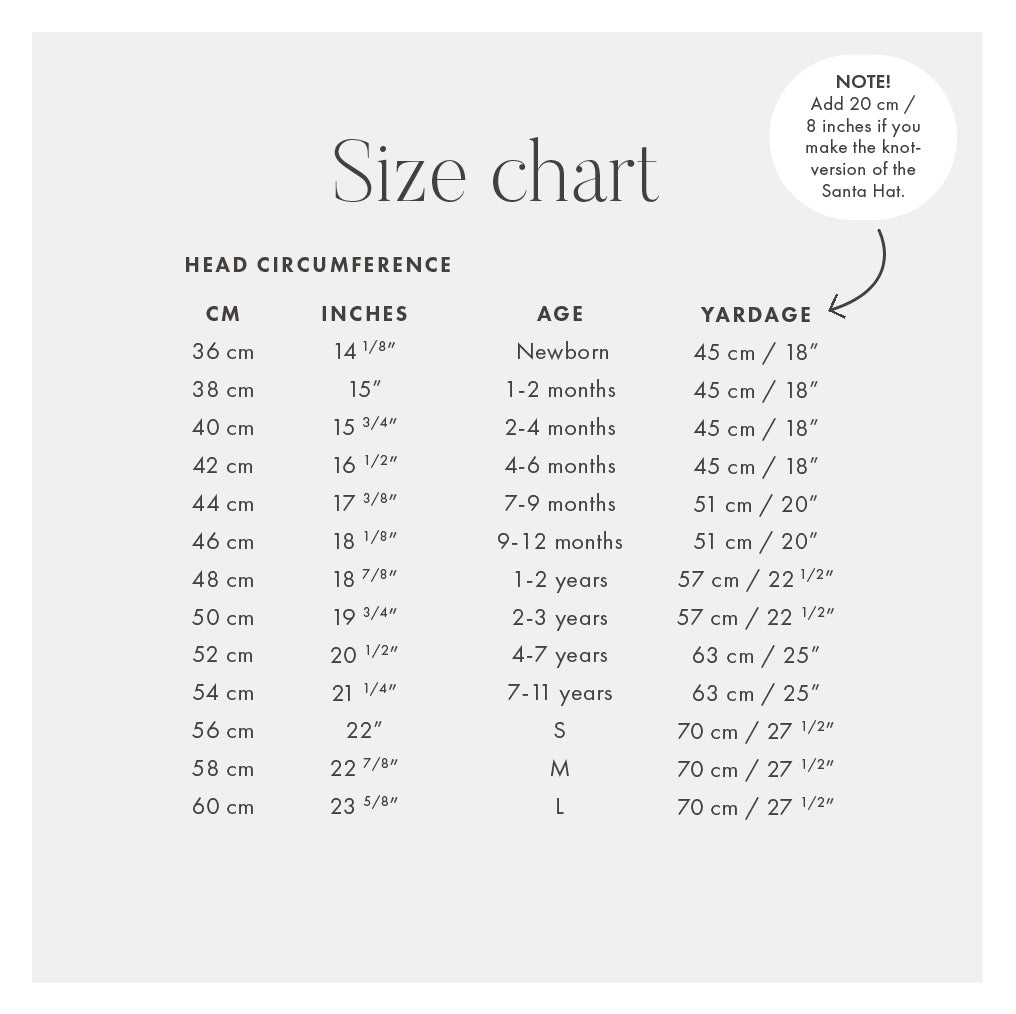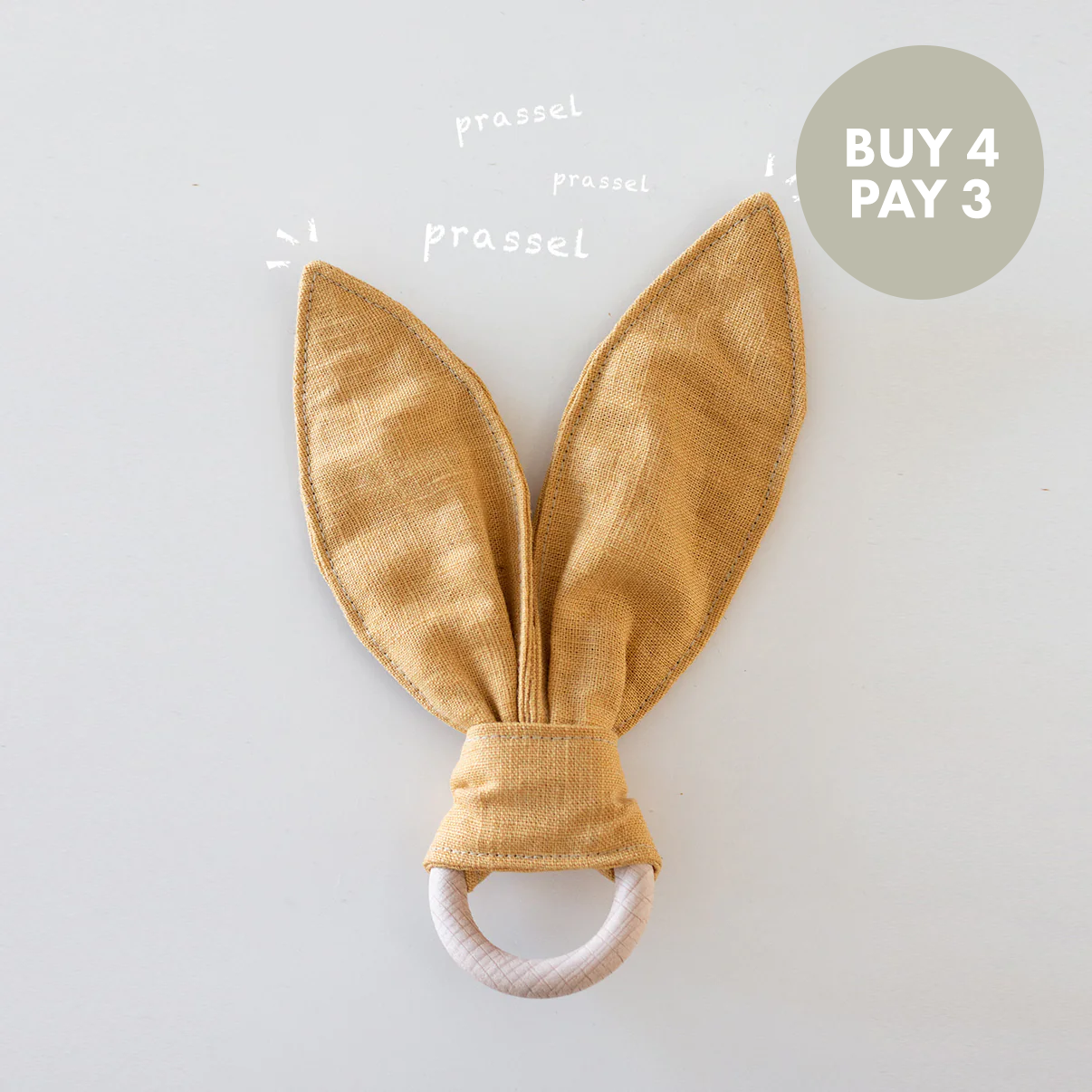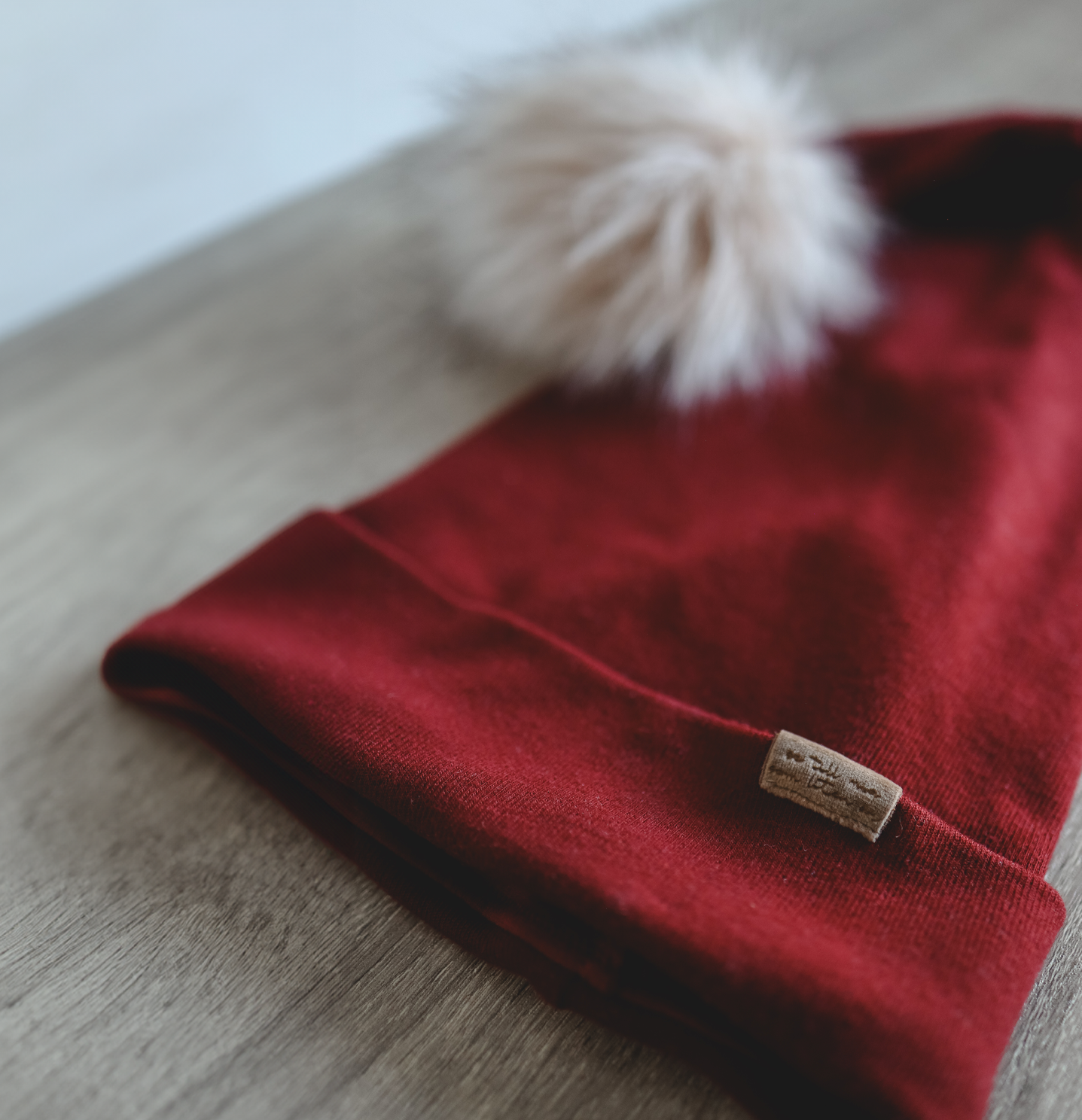Storleksguide & Tygåtgång
Storlekarna på luvan bestäms enligt mottagarens huvudomkrets. Om du syr i ett mindre elastiskt tyg än det som rekommenderas kan du behöva sy en luva i en större storlek.


Sewing pattern for rustling bunny ears - a favorite toy for babies
What you need:
Other supplies that are good to have: Tape measure, buttons/sewing clips, fabric scissors, matching sewing thread, iron.
Sewn with a regulare sewing machine .
I recommend that you use a woven fabric that does not stretch when using rattle cellophane on the inside.
Difficulty: ★ (1 of 3)
This pattern makes a bunny with rustling ears that your baby will love! Prasslis is a beginner-friendly and very quick pattern that possibly is a bit addictive ;)
I recommend making the bunny ears with rattle cellophane inside (just like I show in the pattern) as they will be much more fun for babies. But you can absolutely make the project without plastic wrap if you prefer.
The finished Prasslis will be about X cm high including the wooden ring.
Storlekarna på luvan bestäms enligt mottagarens huvudomkrets. Om du syr i ett mindre elastiskt tyg än det som rekommenderas kan du behöva sy en luva i en större storlek.


Ett symärke i sammet blir enligt mig som pricken över i på Luvisen. Dessa dubbelvikta med texter som "Se till mig som liten är" och "Be the light" är mina absoluta favvisar att använda på tomteluvor just nu.
You may also like